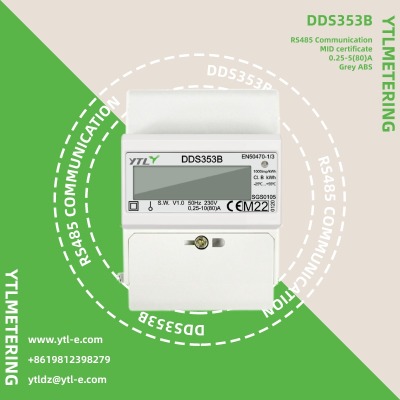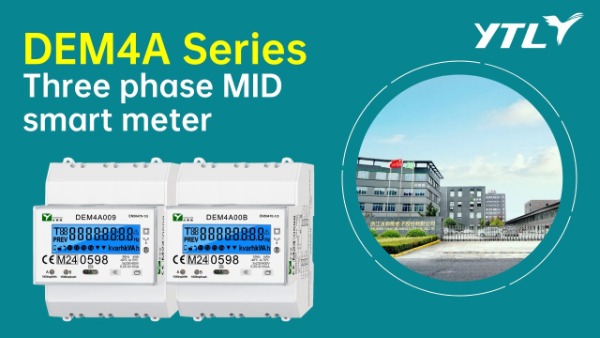The electricity meter is a device used to measure electricity consumption, and it has been widely applied in modern society. Electricity meters are not only essential devices for residential households, but also play an important role in industrial production, commercial electricity use, and other fields. This article will explore the widespread application of electricity meters from the perspectives of their historical development, operating principles, application areas, and future trends.
First, let us take a look at the historical development of electricity meters.As early as the early 19th century, people began to realize the importance of electricity, but accurately measuring power consumption has always been a challenge. It was not until 1888 that Siemens introduced the world's first commercial electricity meter, marking the birth of the watt-hour meter. With the advancement of technology, the performance of electricity meters continues to improve, and their functions become more diverse, allowing them to be widely used in various fields.

Secondly, let's understand the working principle of an electricity meter. Electricity meters calculate power consumption by detecting changes in current and voltage.Usually, electricity meters monitor the changes in current and voltage in real time through current transformers and voltage transformers, then transmit the data to the chip for processing, and finally display it on the meter. The display function of the electricity meter enables people to have a clear understanding of their electricity usage, effectively control the amount of electricity consumed, and save energy.
Next, let's take a look at the application areas of electricity meters. Electricity meters are mainly used to measure power consumption in households, industries, commercial spaces, and other places. In households, electricity meters can help residents monitor their electricity usage, schedule electricity usage reasonably, and save energy.In industrial production, energy meters can help enterprises monitor real-time electricity consumption, optimize production processes, and improve production efficiency. In commercial electricity usage, energy meters can assist businesses in accurately calculating electricity charges, controlling operating costs, and enhancing economic benefits. It can be said that energy meters have become an indispensable device in modern society, providing strong support for the development of various fields.
Lastly, let us look forward to the future development trends of energy meters. With the advancement of smart technology, energy meters are also continuously being upgraded and improved.In the future, electricity meters will become more intelligent, capable of remote monitoring, remote meter reading, and other functions, making it more convenient for people to manage their electricity usage. At the same time, with the gradual popularization of renewable energy sources, electricity meters will better adapt to the integration of new energy sources, achieving sustainable energy utilization. Overall, electricity meters will play a more important role in future development, bringing more convenience and benefits to people's lives and socio-economic development.

In conclusion, as an important power measurement device, electricity meters have been widely used.Its appearance not only makes it more convenient for people to manage electricity usage and save energy but also provides crucial data support for industries, businesses, and other fields. In the future, with the continuous advancement of technology, the functions and performance of electricity meters will continue to improve, providing more assistance for sustainable development of society and sustainable use of energy. It is hoped that electricity meters will keep innovating on the path of the future and contribute greater power to the betterment of human life.

 English
English 中文简体
中文简体


.jpg?imageView2/2/w/500/h/500/format/png/q/100)

-1.jpg?imageView2/2/w/500/h/500/format/png/q/100)









